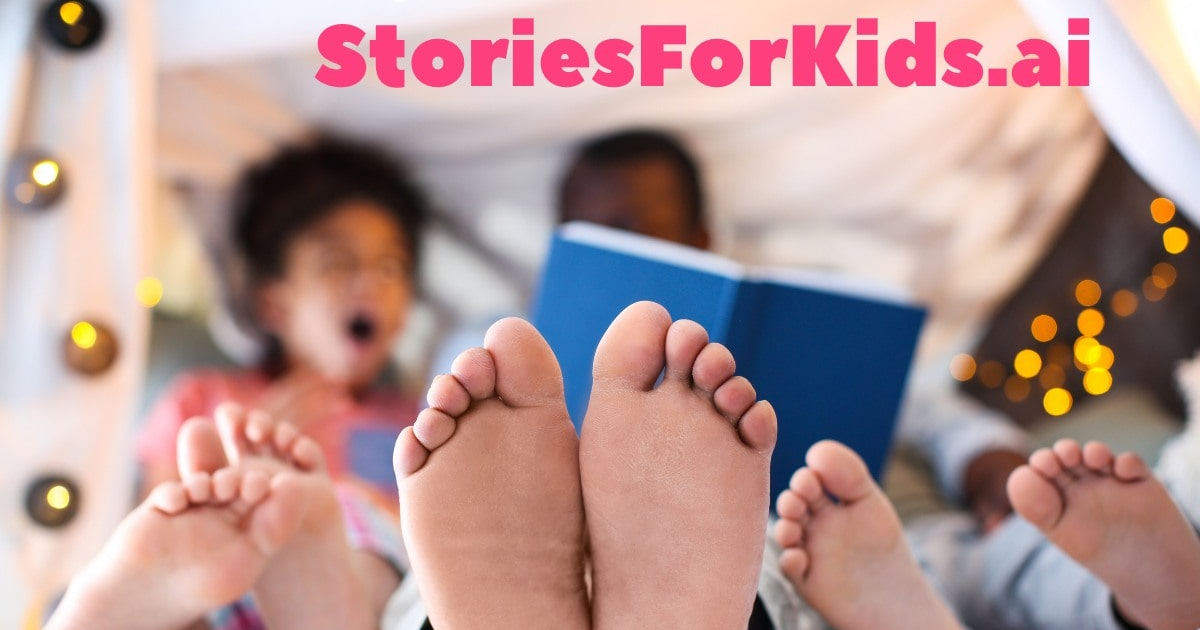Description
Discover a magical world of interactive and educational stories for children with StoriesForKids. Engage young readers with entertaining tales that promote important skills while providing fun and learning. Accessible online, StoriesForKids offers stories for a wide age range, with options for offline reading. Multiple languages available and welcoming story submissions. Explore the enchanting world of StoriesForKids today
Building Character, One Story at a Time: The Power of StoriesForKids
Stories are the most powerful way to teach values, ethics, and morals. They help us identify with others, connect emotionally, and empathize with their struggles.

Through stories, we can learn what it means to be good human beings who care about our fellow humans and practice those skills in real-life situations.
The Power of Stories
Stories are an essential part of the human experience. They help us understand ourselves and others, make sense of the world, feel connected to others, and learn about ourselves.
Stories help kids develop empathy: Kids who read stories show more empathy than those who don't!
Stories help kids learn about themselves: In one study, children who heard stories about themselves could describe their personalities better than those who didn't hear stories about themselves (Rudy & Lowenthal 2017).
The Power of Stories for Kids
Stories are powerful tools. They help children understand themselves, others, and the world around them. Stories can also be used to help kids make sense of their feelings and experiences.
Stories help kids connect to other people by showing them how others have felt similar emotions or situations. This helps kids develop empathy towards others when they experience similar feelings later in life.
Stories can also teach children about past events that happened long before they were born but still affect us today (e.g., World War Two), present-day events happening right now (e.g., climate change), and future possibilities for the world we live in (e.g., flying cars!).
Why is story-telling important in character-building?
Story-telling is important to character-building because it teaches children values, empathy, and compassion. A story can also show how other people have experienced the same situation as you but dealt with it differently.
For example:
- You feel sad because someone has said something mean about your friend. In the story "The Ugly Duckling," by Hans Christian Andersen, a duckling is teased by other animals for being different from them until he finds his true identity as a swan! You may feel better after hearing this story because you realize that everyone has problems at some point in their lives, but if they work hard enough on themselves, then they can be happy like the ugly duckling who became beautiful when he grew up!
- Your parents tell you not to play video games all day long because they think they are bad for your health (or whatever reason). But then later on, when they see how much time it takes away from studying/playing outside etc., now they understand why video games aren't good after all...
-
What is character education?
Character education is a broad term that encompasses many different programs. It's an educational philosophy focuses on teaching students to make good choices and build their character by developing values, virtues, and behavior habits. Character education can be found in various settings, from preschools to high schools and universities.
Character education In response to the belief that schools should be more than just places where kids learn facts and skills, character education programs have grown dramatically over the last two decades. These programs aim to help children develop into responsible citizens who can lead fulfilling lives as adults by focusing on their personal development rather than just academic achievement
How do stories help students practice empathy and compassion?
Stories help us relate to and understand other people. They allow us to see the world through their eyes, which helps us be more empathetic toward them. Stories can also teach children about compassion and kindness so they know how to treat others when they grow up.
One example is The Giving Tree by Shel Silverstein--the story of a tree that loves a boy unconditionally until it gives him everything: its apples, branches, and leaves all become gifts for the boy as he grows older. Eventually, there's nothing left but an old stump, so what does that mean?
How can we use stories to teach right and wrong?
Stories can be used to teach right and wrong, moral lessons, values, and empathy. You can use stories to teach compassion as well.
Examples of stories that have been used to teach right and wrong:
- The Little Red Hen
- The Boy Who Cried Wolf
How do we use stories to teach values in our schools?
Stories are a powerful tool for teaching values. They can help students understand and practice values such as kindness and honesty. Stories also show the consequences of actions so children will know right or wrong in different situations. For example, if a character steals something from someone else, you might talk about how stealing hurts other people's feelings and makes them feel unsafe around you--and then explain why this is bad behavior.
How do we make sure that storytelling is as inclusive as possible?
There are a few ways to make sure that storytelling is as inclusive as possible:
- Make sure that all students feel included. This can be done by ensuring every student has an opportunity to share their stories and ask questions about the story being shared.
- Ensure that your biases don't limit who you include in the story. If you only tell stories about white men, then this will exclude other people from sharing their experiences with your class or community (which may have been very different from those of the main character). Try not to let your knowledge base get in the way of learning something new!
- When selecting books for reading aloud, try following these guidelines: 1) Do not choose books that feature only one type of person (e.g., only boys); 2) Make sure there are male and female characters; 3) Choose diverse ethnicities where possible; 4) Include disabled characters if possible (although keep in mind there won't always be one available); 5)) Avoid stereotypes when creating fictional characters 6)) Avoid stereotypes when creating real-life characters
Stories are one of the most powerful ways to build character in our kids while they are young.
Stories are one of the most powerful ways to build character in our kids while they are young. Stories help us to make sense of the world, understand our place in it and how others feel. They also teach us what kind of person we want to become.

When you read or tell your child a story, be mindful of what message you send them about how people should act toward each other. If you want your child to grow up with empathy and compassion, choose books with characters who show kindness towards others or even animals!
Conclusion
Stories are one of the most powerful ways to build character in our kids while they are young. They help us to teach them right from wrong, empathy and compassion for others, and how to practice good morals. The best part is that these stories don't have to be complicated or long! They need to teach lessons that will stick with children as they grow older so that they can remember what it means when someone does something good or bad in real-life situations too.
StoriesForKids Inspiring Creativity and Learning Through Storytelling
Frequently Asked Questions
What are StoriesForKids?
StoriesForKids is an online platform that offers a collection of interactive and educational stories for children. These stories are designed to entertain and engage kids while promoting various skills such as reading, creativity, and critical thinking.
Are the stories suitable for all age groups?
Yes, StoriesForKids offers stories for various age groups, from toddlers to pre-teens. Each story is categorized according to age suitability, making it easier for parents and children to find stories appropriate for their age and reading level.
Can I read the stories offline?
Yes, we understand that internet access may not always be available. That's why StoriesForKids has an offline reading feature that allows you to download and save stories to your device. Once a story is downloaded, you can read it offline at any time, making it convenient for long car rides or areas with limited internet access
